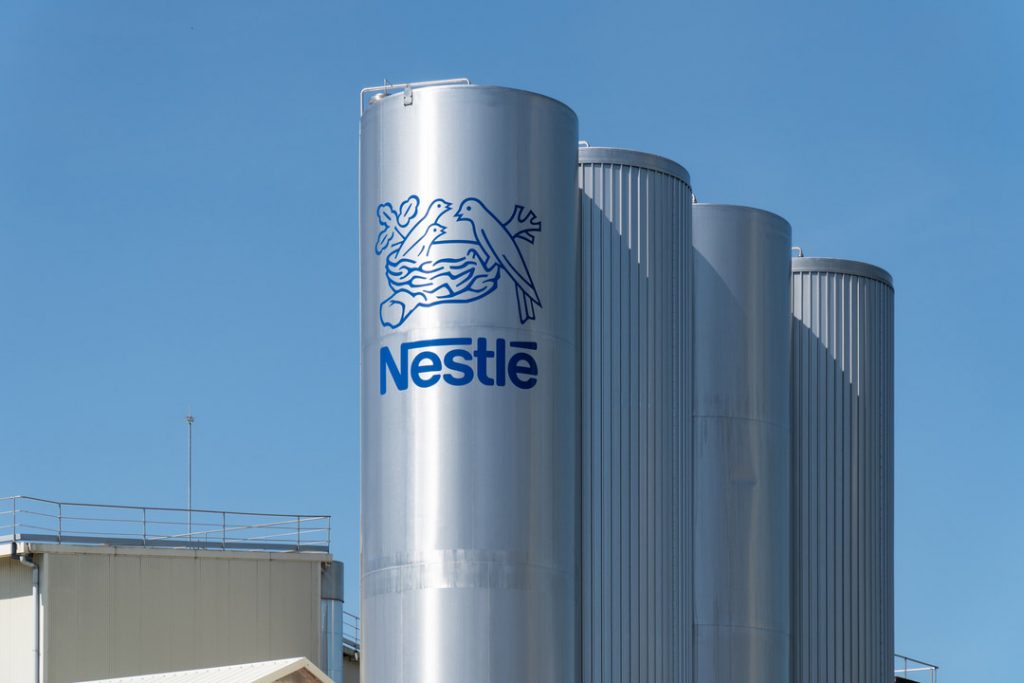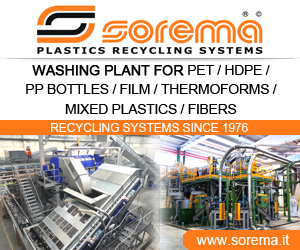
Nestlé pledged to buy up to 2 million metric tons of food-grade recycled plastics over the next five years. | Formatoriginal/Shutterstock
Nestlé says it will buy a huge quantity of food-grade recycled resin over the next five years. A company leader explained why the brand owner is committing to use recycled plastic despite its higher cost.
The global food and drink producer on Jan. 16 announced its plan to invest more than 1.5 billion Swiss francs (over $1.5 billion) to source up to 2 million metric tons of food-grade recycled plastics between now and 2025.
In an interview, Chastity McLeod, head of technical packaging for Nestlé USA, elaborated on the company’s interest in building markets for food-grade recycled plastics.
Through its Nestlé Waters division, the company has served as a major end user for food-grade RPET. The latest announcement takes that same focus into the company’s food packaging. That includes PE and PP, used in products such as stretch and shrink film, bundle wraps, trays, closures and other products.
“All those things are part of our food portfolio,” McLeod said.
But unlike food-grade RPET, which Nestlé Waters sources through a variety of channels including its supply partnership with U.S. reclaimer CarbonLite, food-grade PE and PP are not as readily available for Nestlé to purchase, McLeod said.
“Nestlé is pledging to, basically, invest dollars into this space so they can create the pull for this and drive the use of post-consumer recycled materials,” she said. “If you don’t have people who are willing to invest in the use of these materials, then you don’t have infrastructure that can build up the capabilities – the processing that gets us there.”
The company’s pledge to invest $1.5 billion signals that Nestlé is willing to pay a little bit more for recycled material and can give processors confidence to invest in infrastructure needed to build this market, McLeod said.
The pricing difference between virgin and recycled resin varies by material and quality, McLeod noted, so it’s difficult to give an exact figure of how much more Nestlé will be spending on recycled over virgin resin. But she said recycled resin can sometimes carry a 10% or 15% premium compared with virgin prices.
The announcement comes amid a wider focus on packaging sustainability efforts for Nestlé, which has faced criticism from environmental groups for the amount of plastic packaging it produces. The company currently has about 2% post-consumer plastic content in its packaging globally, according to the Ellen MacArthur Foundation, and is aiming to hit 15% by 2025.
In the U.S., Nestlé Waters uses about 7% recycled plastic across all its packaging. It has announced plans to quadruple that figure by 2021 and hit 50% by 2025.
Plastic reduction and startup investments
Beyond its recycled plastics pledge, Nestlé announced a plan to reduce virgin plastic use in packaging by one-third. The company in 2018 used 1.7 million metric tons of plastic in its packaging.
McLeod noted the virgin plastics reduction may also include material reduction, such as lightweighting, and shifts to non-plastic materials such as paper packaging.
“We’re taking a multi-faceted approach to tackle the use of virgin plastics,” she said.
The company also announced an effort to support startup companies engaged in the sustainable packaging industry. This project will be funded with 250 million Swiss francs ($258 million) and will complement the company’s Switzerland-based Nestlé Institute of Packaging Sciences, an in-house research facility.
The fund, which is under development, will focus on investing in companies engaged in efforts related to “packaging innovation, including new materials, refill systems and recycling solutions,” similar to the company’s internal research efforts.
“We have our internal eye on this,” McLeod said. “We also want to make sure we’re connecting with the right partners externally.”
More stories about brand owners
- Ellen MacArthur Foundation sets 2030 plastics agenda
- Retailers launch CA campaign to ditch single-use bags
- New report explores the future of CPG packaging goals



